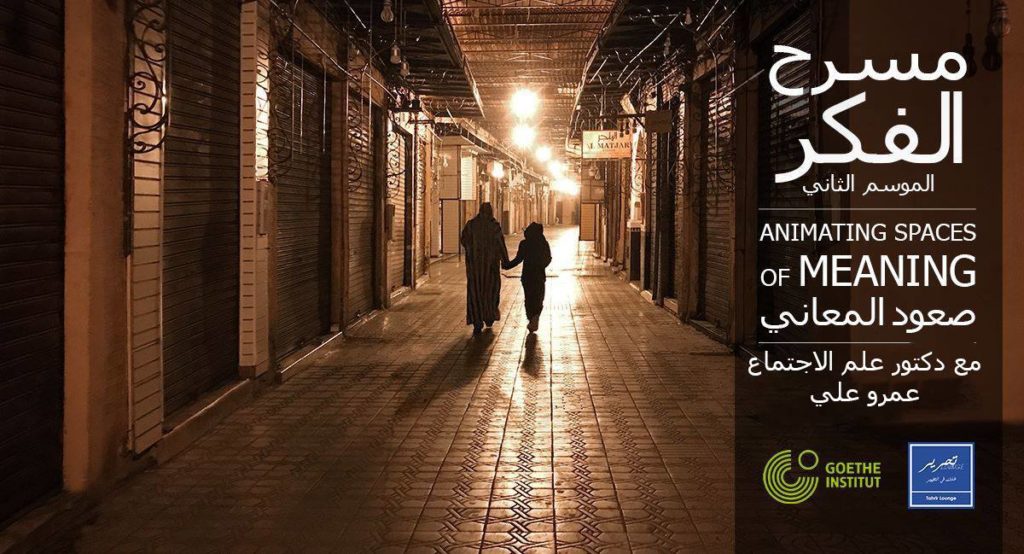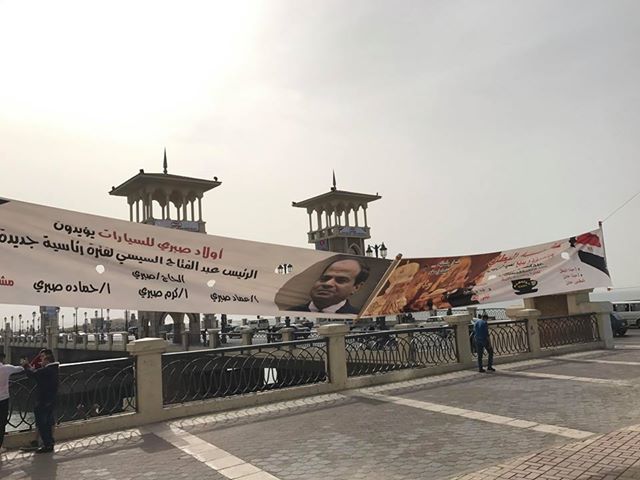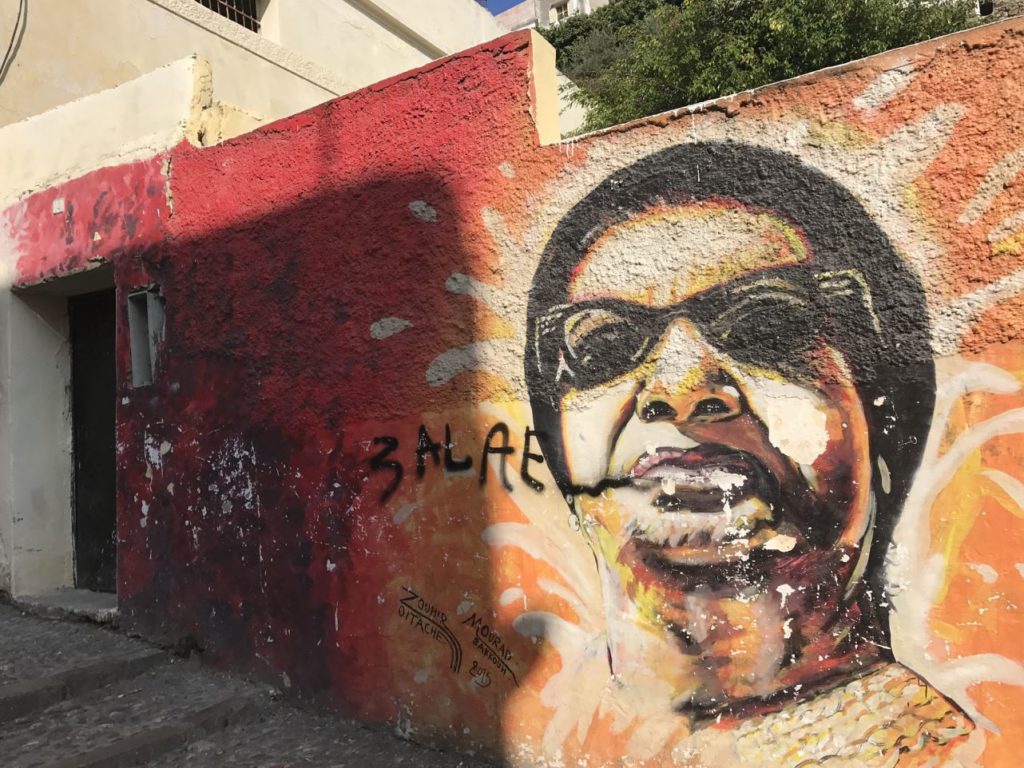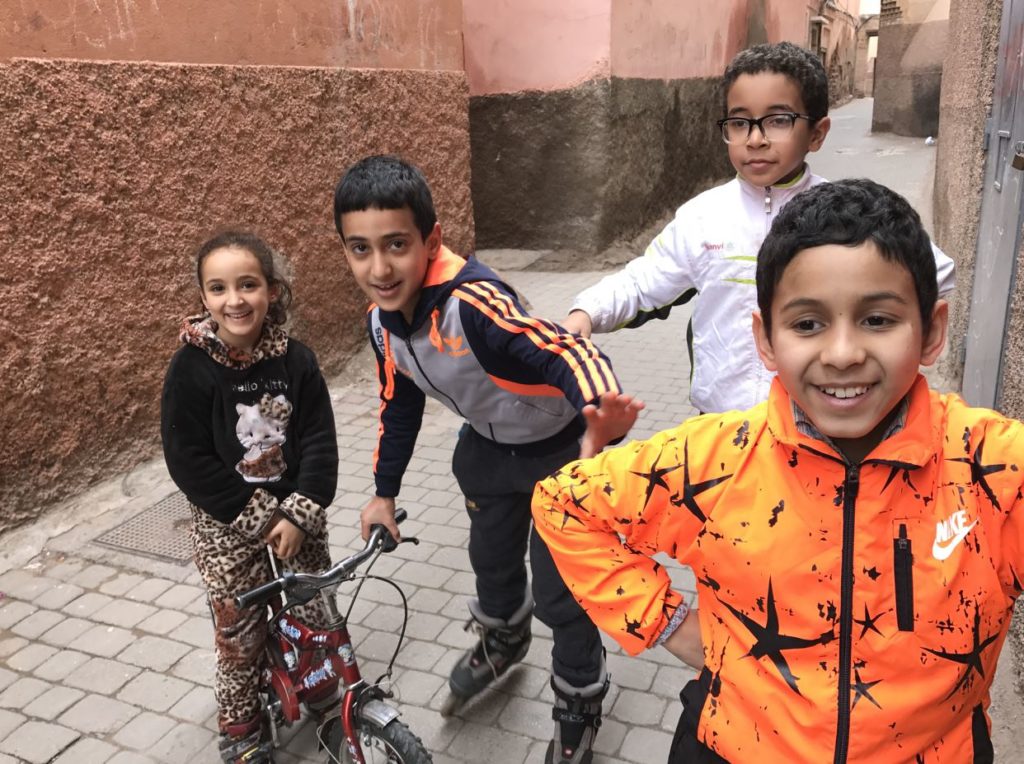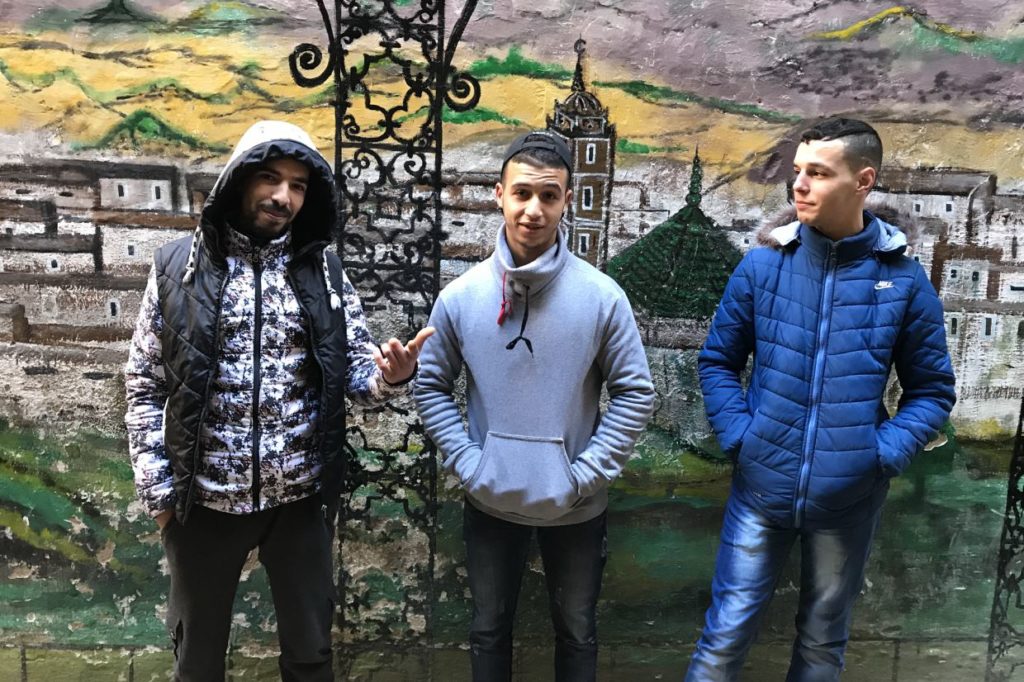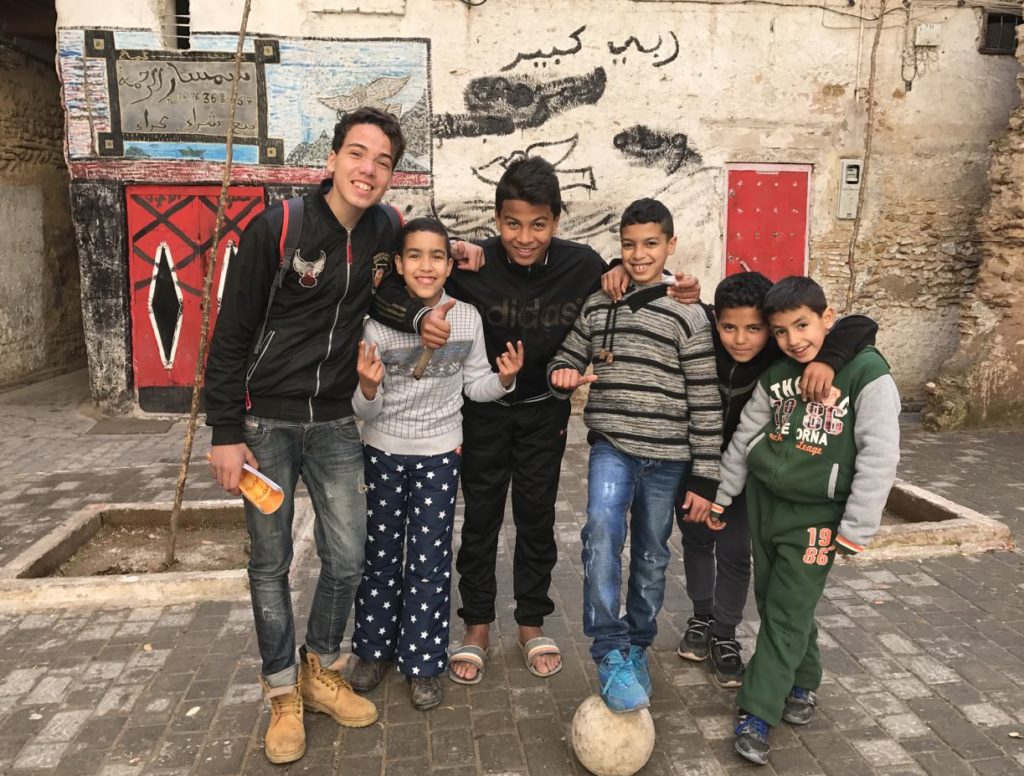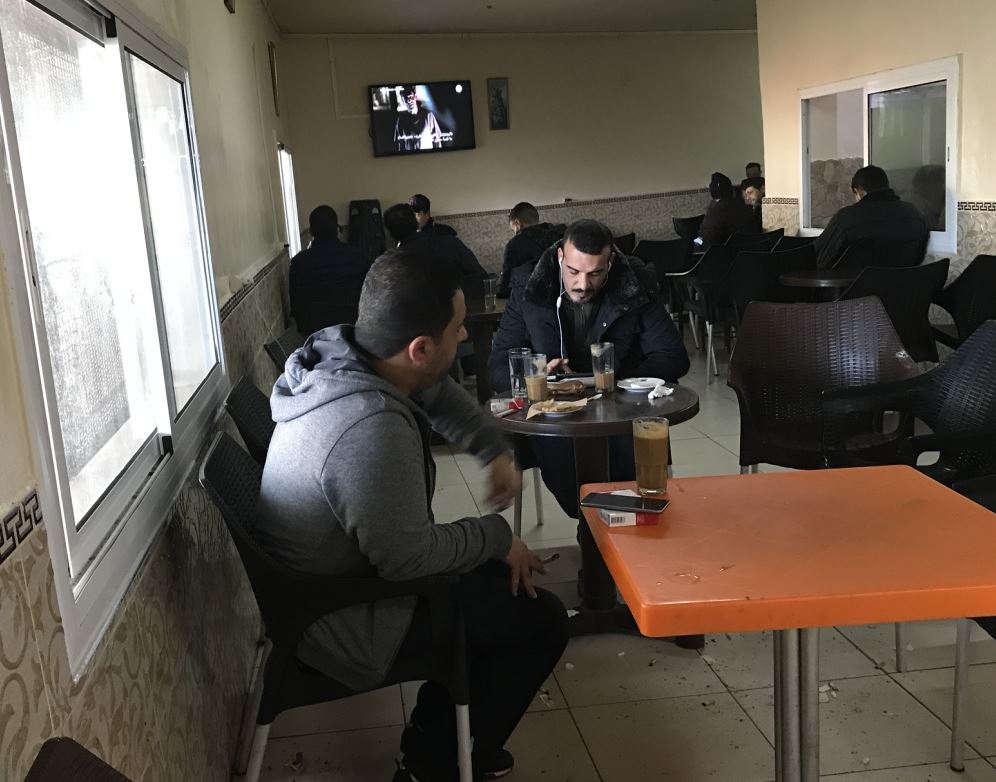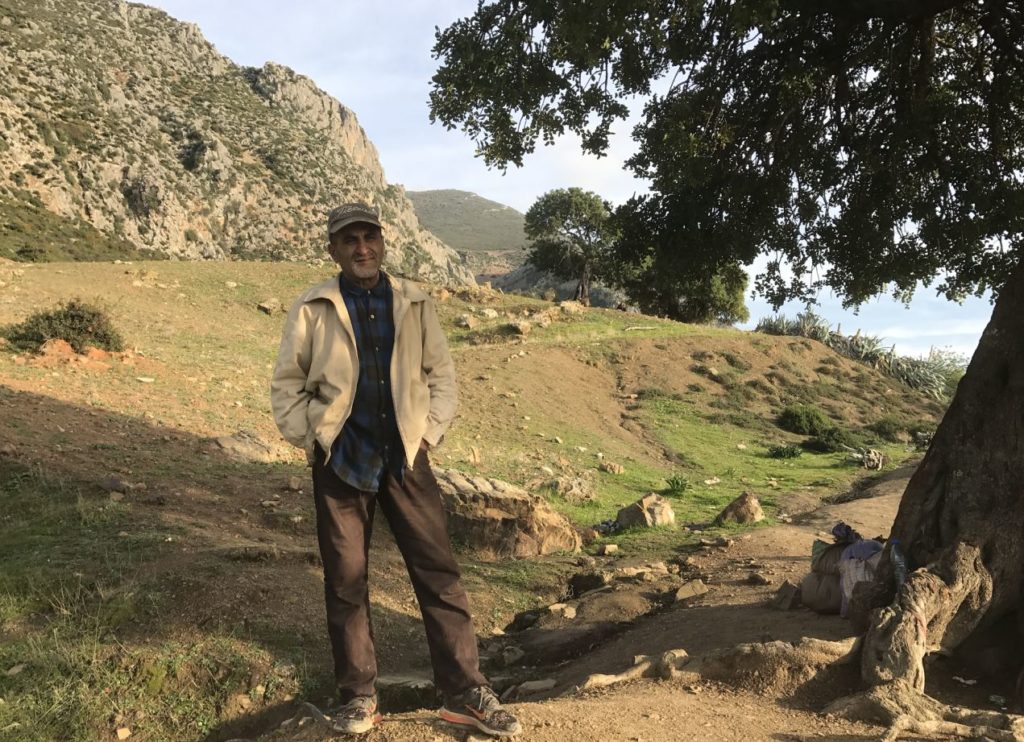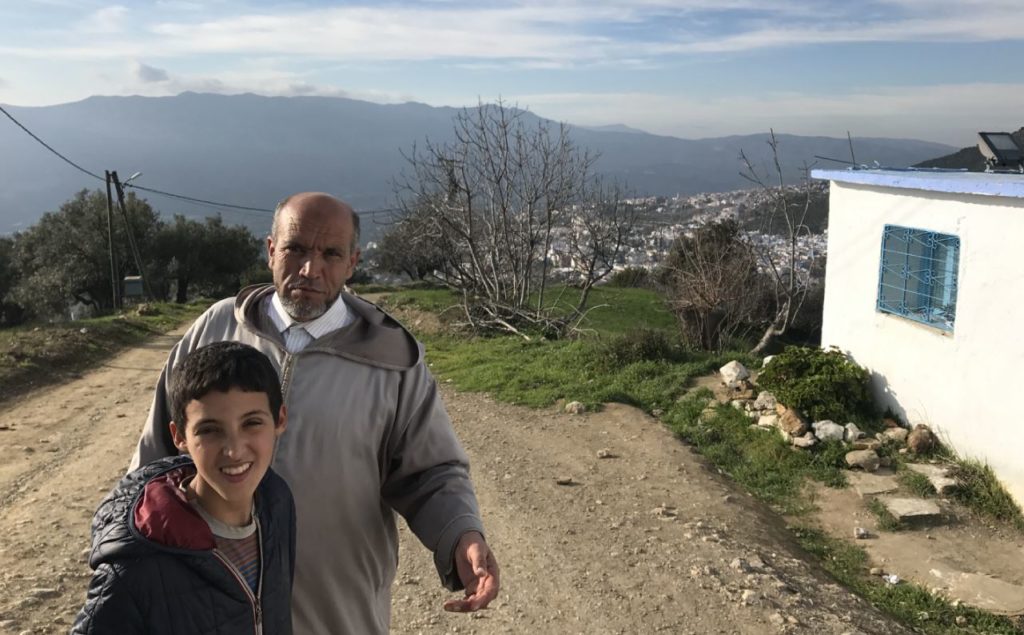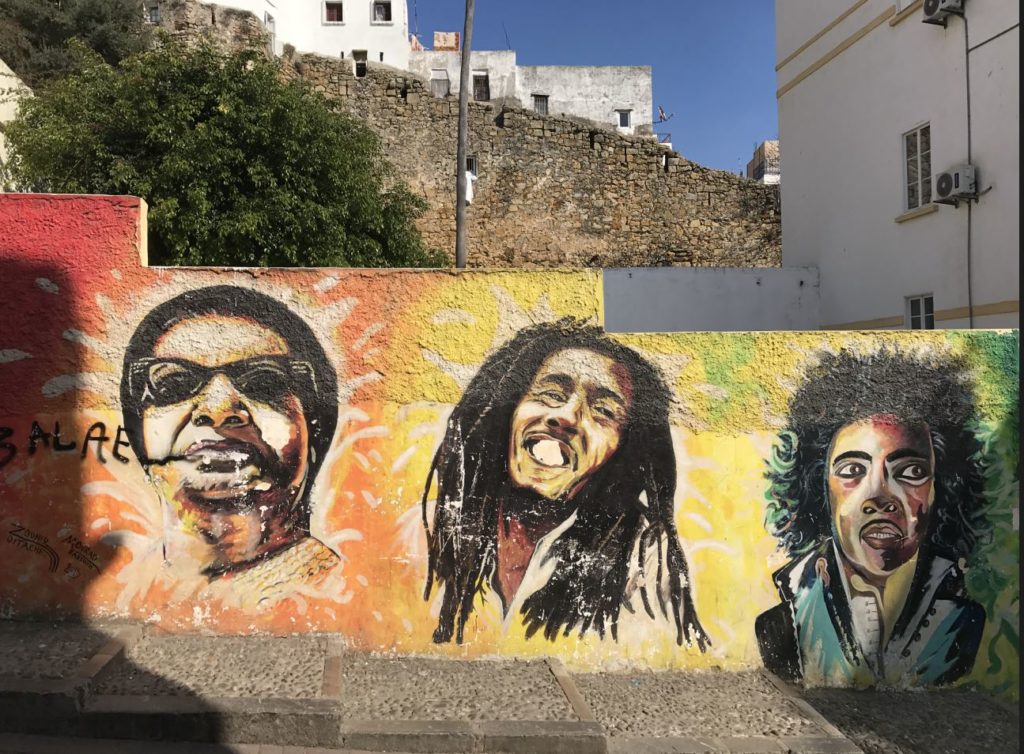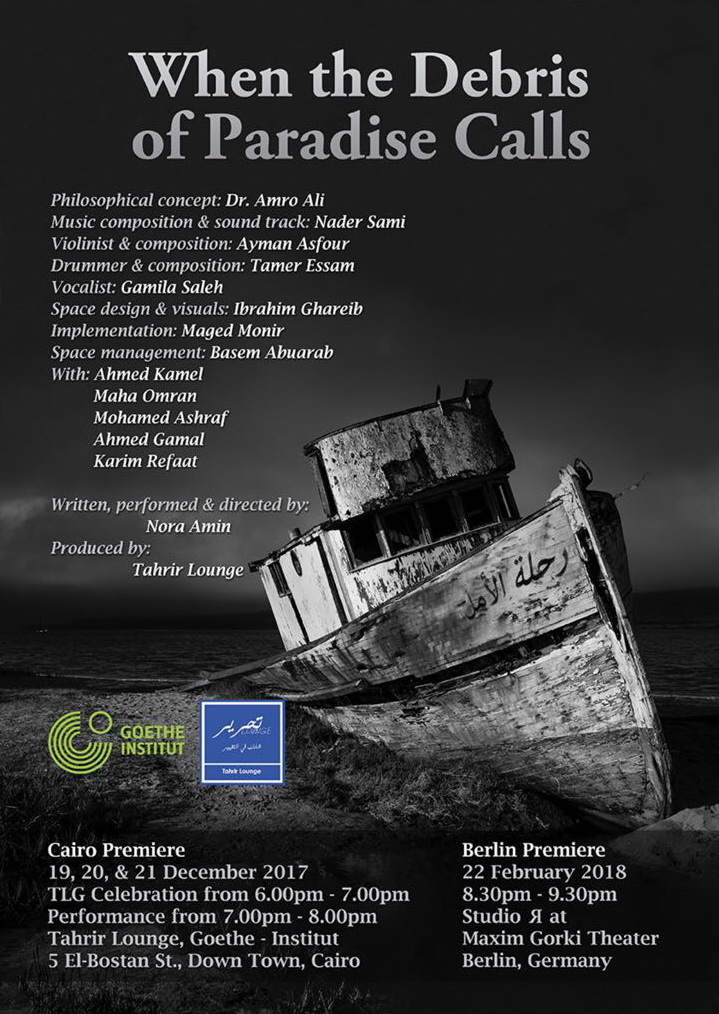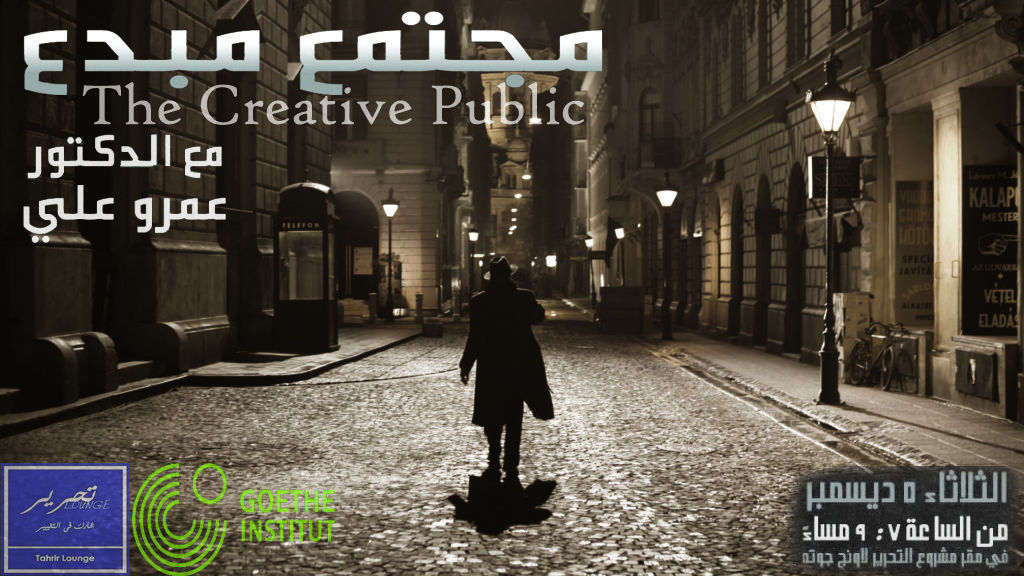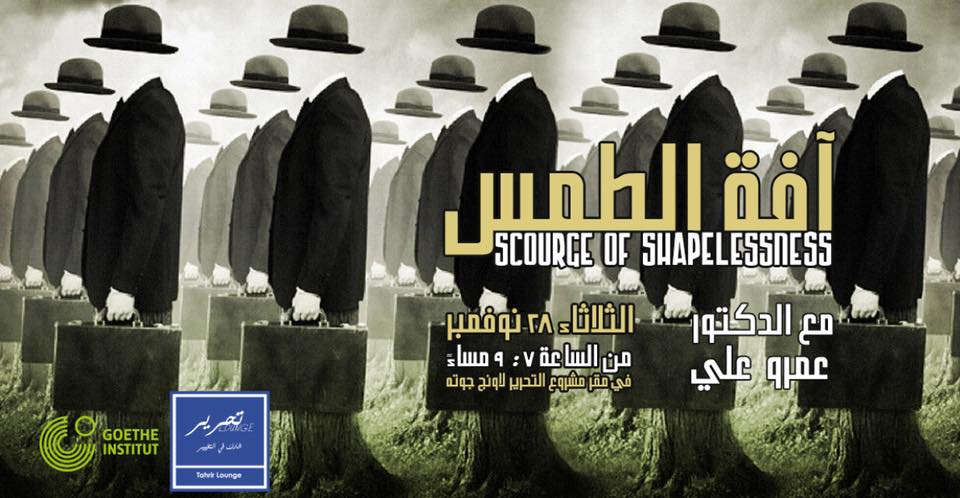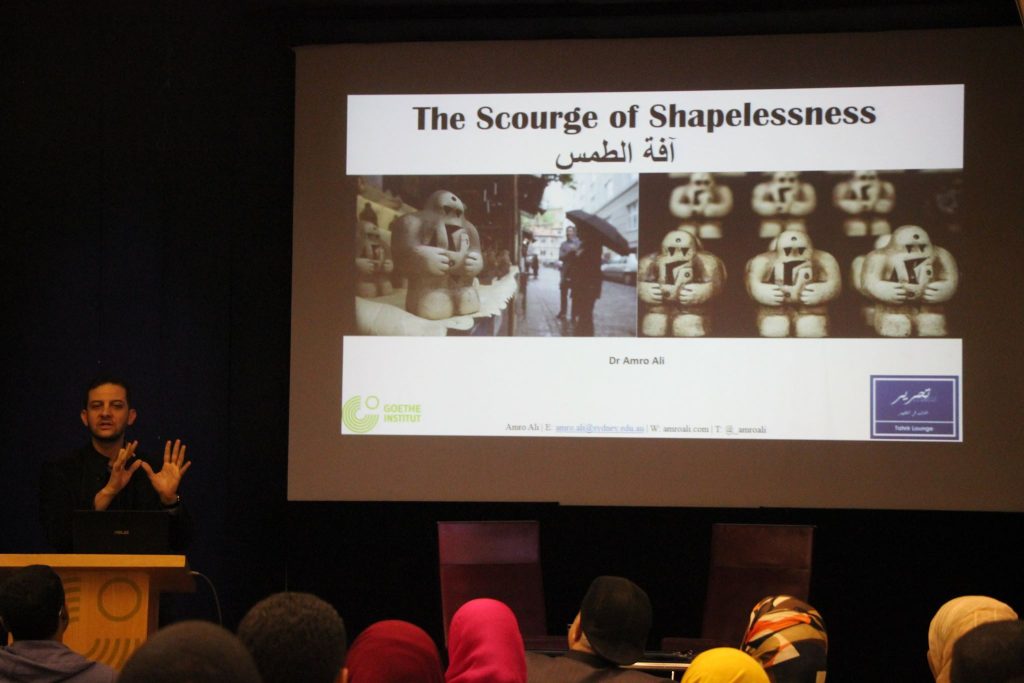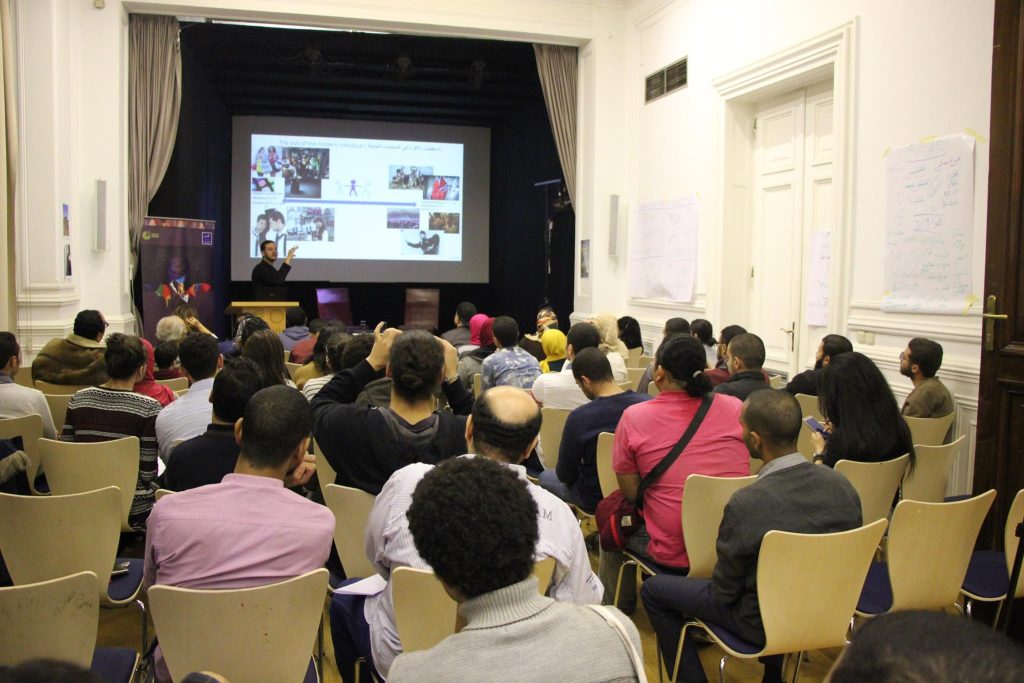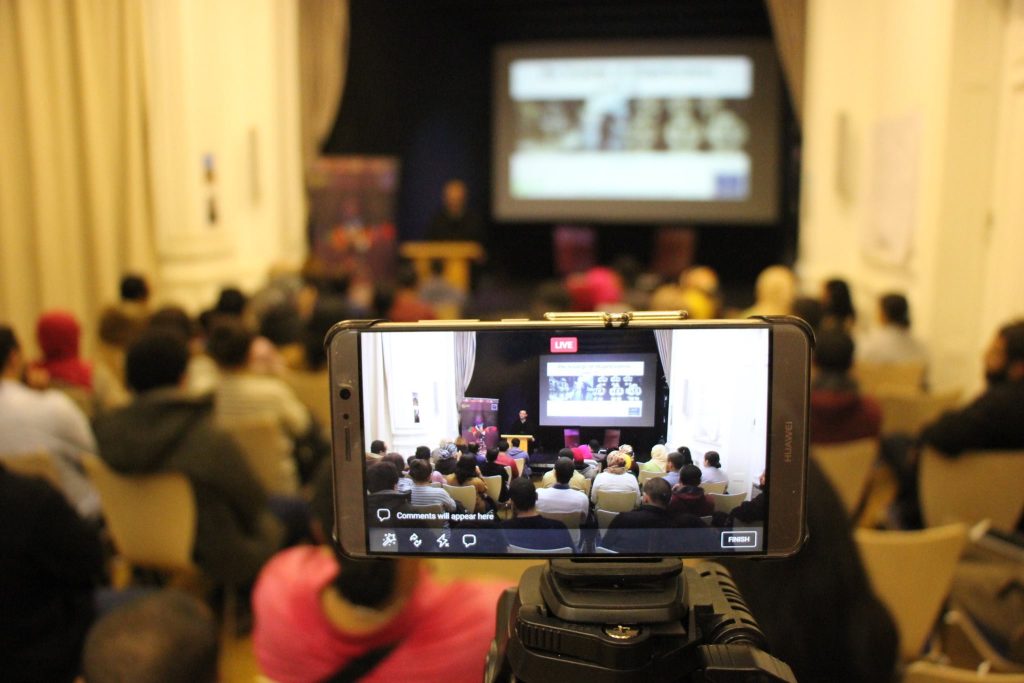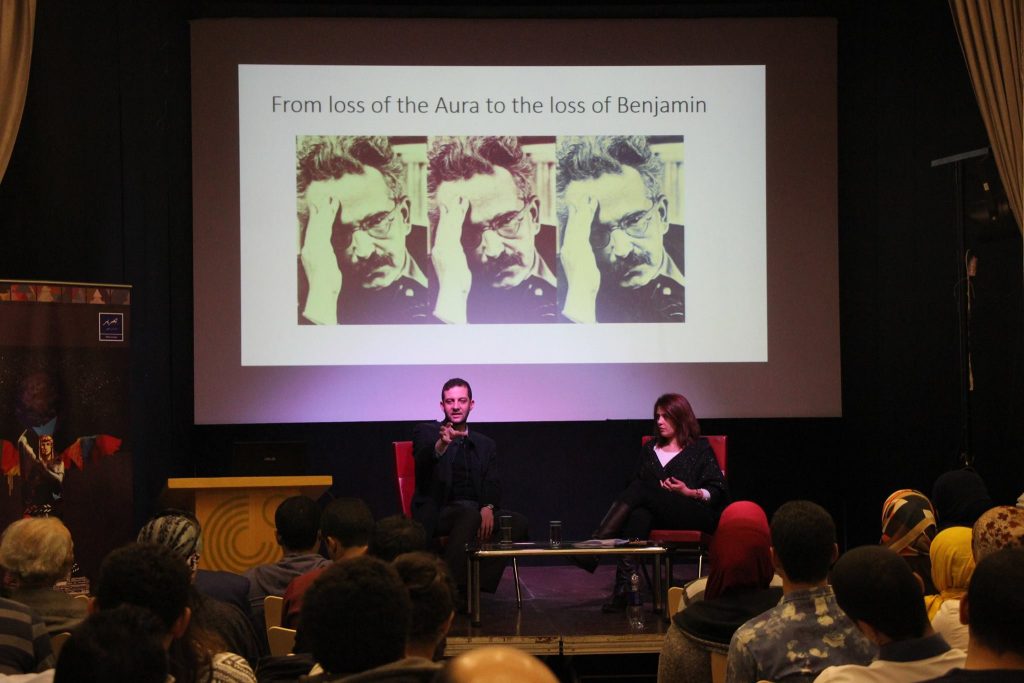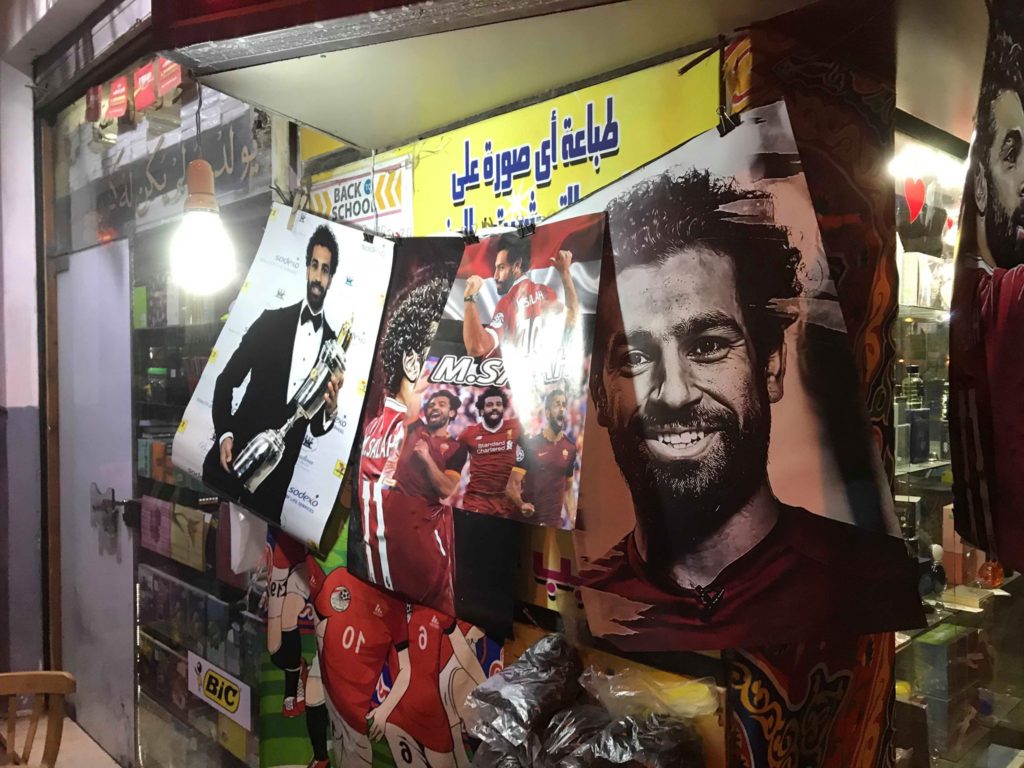
An Italian translation of the Mada Masr essay Unhappiness and Mohamed Salah’s Egypt, which featured in Italy’s Internazionale magazine, print edition. (Click here for the PDF magazine version)
“Infelice è la terra che non produce eroi,” esclama Andrea in Vita di Galileo, opera del 1938 del drammaturgo tedesco Bertolt Brecht. E Galileo gli risponde: “No, infelice è la terra che ha bisogno di eroi”.
L’Egitto potrebbe essere quella terra infelice. Un posto dove ormai sono più le feste di addio che quelle di bentornato. Dove una giovane dottoressa medita con tristezza di andare via, perché “far nascere un bambino qui mi sembra moralmente sbagliato, quasi illegale”. Dove il proprietario di un chiosco di succhi di frutta dice con sarcasmo: “Non abbiamo tempo di pensare ad altro che alla sopravvivenza; non abbiamo neanche tempo per pensare al suicidio”. Quando un paese precipita in problemi economici e sociali senza fine e sprofonda nella disperazione, cresce il desiderio di un batal (eroe), una figura che da sola possa comprendere e risolvere la dolorosa complessità del reale.
In Egitto qualcosa ha causato un cortocircuito in uno sport che spesso i governi usano per distrarre le masse. Qualcosa ha intralciato il disegno autoritario che vuole impedire all’unicità di emergere dal lusso della vita egiziana.
Ecco a voi Mohamed Salah, il calciatore, armato della sua etica.
Salah è motivo di speranza per molti, ed è uno spettro inquietante che perseguita le autorità. Perché lui ha davanti a sé delle alternative, ha prestigio internazionale e un’aura di intoccabilità. Poco alla volta è diventato molto di più di un semplice eroe del calcio. Salah è un eroe dirompente, il paradosso vivente di una voce che fa politica senza parlare di politica. La sua è una politica che agisce per giustapposizione inconscia: il calciatore che sembra impeccabile contro i vertici del potere, tanto corrotti e familiari.
Molte personalità egiziane importanti e rispettate sembrano avere una risposta a tutto. Ma poi arriva Salah e ci si trova davanti a domande a cui è difficile rispondere.
Per esempio: perché riponiamo tanta speranza in un uomo?
Salah non può sostituirsi alla politica. Resta pur sempre un calciatore, per quanto bravo. Ma la sua incursione nell’instabile panorama egiziano fa un po’ di luce su quello che è andato storto, e tutto questo entusiasmo per lui pu. dirci qualcosa sull’infelicità egiziana.
Il fatto di restare alla larga dalla politica, o di svelare involontariamente le sue idee, gli ha dato una vasta base di consenso. Dalla rivoluzione del 2011, gli egiziani si ritrovano a vivere tra opposti: rivoluzionario o controrivoluzionario, laico o islamista, civile o militare, liberale o ipernazionalista, pro o contro i Fratelli musulmani. Anche se alcune di queste contrapposizioni si sono placate sotto il regime dei militari, l’unità che si è creata è un’unità in negativo: è quasi sempre contro qualcosa, come il terrorismo; e quando invece è per qualcosa, per esempio per l’Egitto, diventa una costrizione imposta dall’alto, senza spazio per voci o pensieri diversi.
Salah sembra essere il primo, dopo molto tempo, in grado di unire sostenitori e oppositori del regime. Come ha detto un dottorando egiziano che studia in California: “Grazie a Salah sto recuperando il rapporto con il mio paese”.
Qualcosa di peggio
Ormai è normale attribuire l’infelicità in Egitto alla disoccupazione, alla povertà, a un sistema scolastico al collasso, alla censura, alla repressione delle voci indipendenti, alle violazioni dei diritti umani. Indubbiamente questi sono tutti fattori che contribuiscono alla miseria di molti egiziani, ma dietro c’è qualcosa di peggio, di patologico: la triste realtà che all’orizzonte non ci siano alternative. Quella speranza che in passato prometteva che l’infelicità sarebbe stata temporanea si sta affievolendo, e lascia spazio a una tristezza inevitabile. La depressione ti disarma prima ancora che la repressione abbia il tempo d’indossare la sua divisa.
E’ per questo che Salah è come un’improvvisa affermazione di valori umani all’interno di un sistema disumanizzante. Il suo mito non è esploso quando Salah ha contribuito alla vittoria contro il Congo nell’ottobre del 2017 che ha permesso all’Egitto di qualificarsi ai Mondiali di Russia: uno straordinario talento calcistico non basta a convertire i profani del pallone. E non è stata neanche la storia della sua ascesa dalle umili origini alla celebrità. Non c’era nulla di originale in una storia di successo individuale.
Ma poi è venuto fuori l’altro, altrettanto decisivo, aspetto di Salah. Due settimane dopo la partita contro il Congo, l’imprenditore Mamdouh Abbas gli ha offerto in regalo una villa di lusso. Salah ha educatamente rifiutato, suggerendo che una donazione al suo villaggio natale di Nagrig, nella provincia di Gharbia, lo avrebbe reso più felice. Questo gesto, insieme alle sue tante opere di beneficenza, per chi non è tifoso di calcio (come me) è stato a dir poco sconvolgente, e ci ha portati tutti dalla sua parte.
Per capire meglio le implicazioni di un gesto simile, dovete sapere che in Egitto le autostrade sono piene fino alla nausea di manifesti che pubblicizzano gli ultimi esuberanti edifici di lusso e complessi residenziali accessibili solo a chi ci abita. E’ un vero e proprio bombardamento visivo per milioni di egiziani, sconcertati dal fatto che possano esistere progetti simili in un periodo di austerità, in cui viene continuamente chiesto di fare sacrifici. Queste pubblicità, quasi sempre in inglese, e a volte con volti di europei, bianchi e con gli occhi azzurri in primo piano, proclamano a grandi lettere “ E’ il momento di pensare a te”, “Stavolta è una faccenda personale”. Il capitalismo all’ennesima potenza e la speculazione edilizia non solo stanno stravolgendo l’economia del paese, ma stanno anche spingendo al massimo l’individualismo sfrenato, l’avidità e varie forme di disprezzo di se stessi.
Il rifiuto di Salah ha inflitto un duro colpo a una certa cultura del grottesco e dell’eccesso, e ha rappresentato una conferma di quei valori che erano nati (o si erano concretizzati) durante la rivoluzione del 2011, valori che mettevano il bene comune al primo posto. Salah ha infranto una normalità fatta di clientelismo ed espedienti. Se già in molti lo adoravano dopo la vittoria sul Congo, quel gesto e le opere di beneficenza gli hanno fatto ottenere ancora di più il rispetto della gente, anche perché era evidente che non si trattava di una mossa pubblicitaria, ma di un atto coerente con il carattere e la storia del calciatore. L’amore e il rispetto sono due cose diverse.
Da tempo gli egiziani non riescono a guardare qualcuno con rispetto, qualcuno cioè che non sia in esilio, in prigione, o sottoterra. Devono assistere a uno spettacolo estenuante, in cui spesso la versione ufficiale è in conflitto con la realtà e con il senso comune.
Questa guerra di logoramento contro la razionalità ha fatto precipitare gli egiziani in una spirale di conformismo, scetticismo e indifferenza. L’idea di un bene supremo è svanita a poco a poco, mentre il potere ha continuato “non a stimolare la gente con la verità, ma a confortarla con le menzogne”, per dirla con le parole dell’intellettuale ceco Václav Havel. L’intervento di Salah non ha necessariamente cambiato tutto questo, ma ha contribuito a restituire un significato a parole che erano state stravolte: la dignità è tornata a essere dignità, i princípi sono tornati princípi, la generosità è tornata generosità, e la felicità è tornata felicità.
Salah ha toccato anche un’altra questione vitale per lo stato e la società egiziani: il bisogno di un riconoscimento internazionale. Questa necessità s’intreccia con la storia moderna del paese. L’Egitto del presidente Abdel Fattah al Sisi ha fatto innumerevoli sforzi per promuovere la sua immagine, come hanno dimostrato i cartelloni pubblicitari a times Square, a New york, che sponsorizzavano il nuovo canale di Suez con la scritta “Il regalo dell’Egitto al mondo”. Salah è riuscito a impersonare quello slogan in modo molto più dirompente e spettacolare, con un impatto ben più significativo di tutte le campagne turistiche, le conferenze internazionali e tutti i megaprogetti degli ultimi anni messi insieme. Ecco perché nominare Salah in una conversazione può provocare in molti egiziani l’impressione di restare senza fiato, un formicolio alle mani, e un senso di leggerezza.
Questo in parte ha a che fare con la funzione della felicità e del senso della vita. Il regime crede di poter monetizzare la felicità affermando di voler rendere gli egiziani “tra i popoli più felici al mondo”, o discutendo con il ministro della felicità degli Emirati Arabi Uniti sulla possibilità di esportare in Egitto un po’ della loro fantastica pozione.
Sentimenti panarabi
La questione della felicità ha attraversato la storia della filosofia, dall’Etica nicomachea di Aristotele all’Alchimia della felicità di Al Ghazali fino al Crepuscolo degli idoli e all’Anticristo di Nietzsche. Nessuno di questi filosofi avrebbe mai abbracciato l’utilitarismo d’ispirazione anglosassone di John Stuart Mill, che intende la felicità come il massimo utile realizzabile ed è stato riconfezionato dal neoliberismo moderno, rinunciando a una vita ricca di significato di cui la felicità è solo una conseguenza. In altre parole, non si può separare il raggiungimento della felicità dal rispetto per la giustizia, la dignità, la virtù. Eppure le autorità sembrano non mettere a fuoco che la felicità finisce per perdere di senso se non viene salvaguardato l’attivismo dei cittadini, non si apre la sfera pubblica, non si garantiscono processi equi, non s’incoraggia il pluralismo. Se non si evita che il senso dell’esistenza vada in frantumi.
Salah ci lascia sbirciare tra queste fratture, perché comunica non solo più concretamente attraverso il suo successo calcistico, ma anche con l’empatia e la profondità di significato che accompagnano l’onestà del carattere.
La fama di Salah e il suo approccio alla religione arrivano in un momento in cui molti egiziani stanno rimettendo in discussione la loro fede e la loro identità. Quelle norme che un tempo definivano l’osservanza religiosa stanno collassando sotto il peso delle contraddizioni del paese. Lo stato usa la religione per disciplinare in modo arbitrario lo spazio pubblico e i predicatori incoraggiano un islam barocco a discapito dell’essenza umile della religione musulmana.
La diffusa passività spirituale si contrappone alla fede di Salah, che è parte della sua vita pubblica. Anche dopo essere stato catapultato in cima al mondo, non ha mai sentito il bisogno di mettere da parte o modificare la sua identità musulmana. Vedere Magi, la moglie velata di Salah, al suo fianco su un campo di calcio in Europa è stata una scena ipnotica per gli egiziani (e per il resto del mondo), proprio perché è qualcosa d’insolito, soprattutto in un periodo di paure esasperate verso i musulmani in occidente.
Per questi stessi motivi Salah suscita sentimenti di unità in tutto il mondo arabo e musulmano. Ha fatto la sua comparsa sulla scena dei writer libanesi e nelle schede elettorali annullate per protesta in Libano (proprio come in Egitto), ha scatenato una bizzarra manifestazione pacifica fuori dall’ambasciata spagnola a Jakarta dopo il fallo che ha subíto da Sergio Ramos. L’immagine, un tempo diffusa nel mondo arabo, di un Egitto, forte, vivace, nobile, con un ruolo di guida e aperto al mondo – un paese che promuove le arti, dimora del pensiero sunnita, fautore del panarabismo e difensore della causa palestinese – oggi viene proiettata su Salah. Quando s’inginocchia sull’erba e alza gli indici al cielo, centinaia di milioni di musulmani sono attratti da una devozione che è familiare ma che va oltre la cultura e la religione. Mentre il mondo occidentale sprofonda nella sterilità neoliberista, nel consumismo, nella solitudine, negli scandali, nel populismo, nella xenofobia contro i rifugiati e i migranti, nell’islamofobia, nell’antisemitismo e nelle notizie false, il Salah poliedrico (calciatore, padre amoroso che gioca con la figlia) si staglia come un momento di verità e di universalità.
L’alternativa possibile
Albert Camus, immaginando di rivolgersi a un destinatario tedesco, nel 1943 scriveva: “Io vorrei poter amare il mio paese pur amando allo stesso tempo la giustizia. Non voglio per lui alcuna grandezza, soprattutto non una grandezza fatta di sangue e di menzogna. E’ facendo vivere la giustizia che voglio far vivere il mio paese”.
Forse Salah incarna questo ideale: l’amore per un paese non chiede grandi cerimonie o di battersi il petto, ma vuole bellezza, sincerità, umiltà e benevolenza. In un panorama senza modelli degni di rispetto, Salah ricorda agli egiziani che esiste una natura umana migliore. Per l’Egitto e per il resto del mondo l’anomalia Salah mostra che l’alternativa al nazionalismo non è il tradimento ma la responsabilità civica, l’alternativa al conservatorismo non deve essere per forza l’apatia o lo scherno verso il sacro, e l’alternativa all’ingiustizia può essere il perdono. In fondo, in molti avevano quasi dimenticato come le celebrità potessero essere umili.
Salah è quella rara festa di bentornato che gli egiziani aspettano da tempo. Il suo volto sulle lanterne illumina i vicoli bui, i suoi poster colorati coprono i manifesti elettorali sbiaditi.
Anche se è chiaro che Salah non potrà influenzare la situazione politica in Egitto, la sua esistenza vivace indica degli spiragli per il ritorno a una sfera di autenticità. Salah espande l’immaginario etico di un pubblico vigile, mostra delle possibilità, lasciando intuire che il ritmo della vita è qualcosa di più delle nascite, dei matrimoni, delle morti, e perfino dello sport.
E solleva una domanda, con cui prima o poi i potenti dovranno fare i conti, perché ci sono delle ragioni se le persone hanno bisogno degli eroi: cosa avete fatto per renderle così infelici?

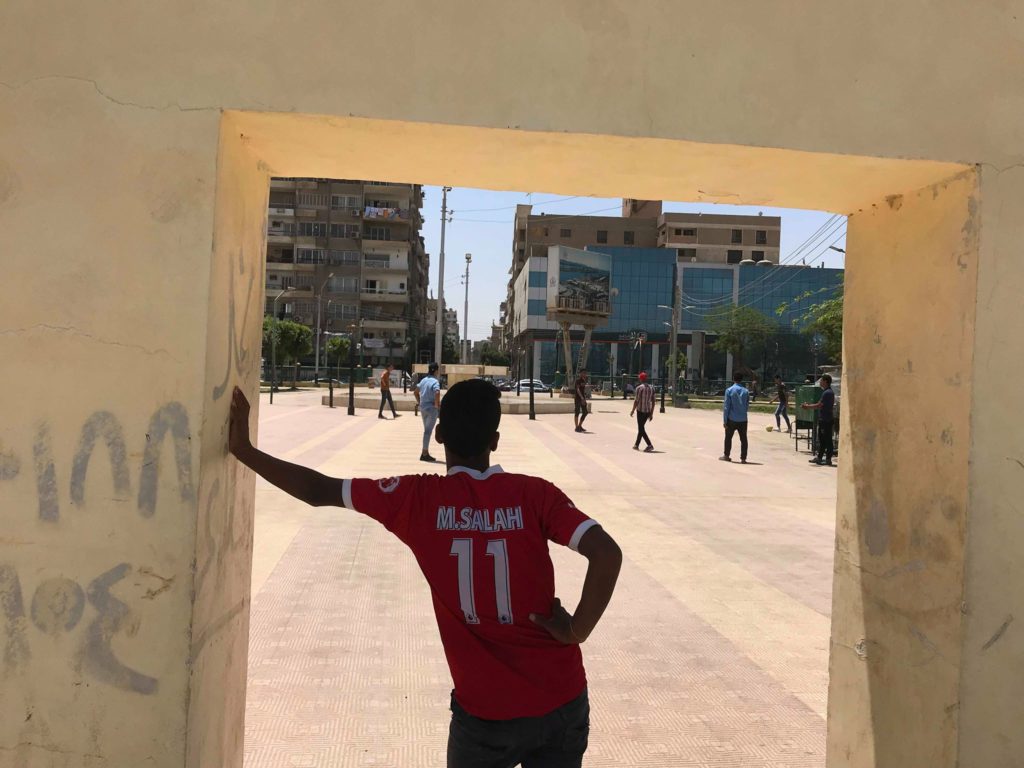

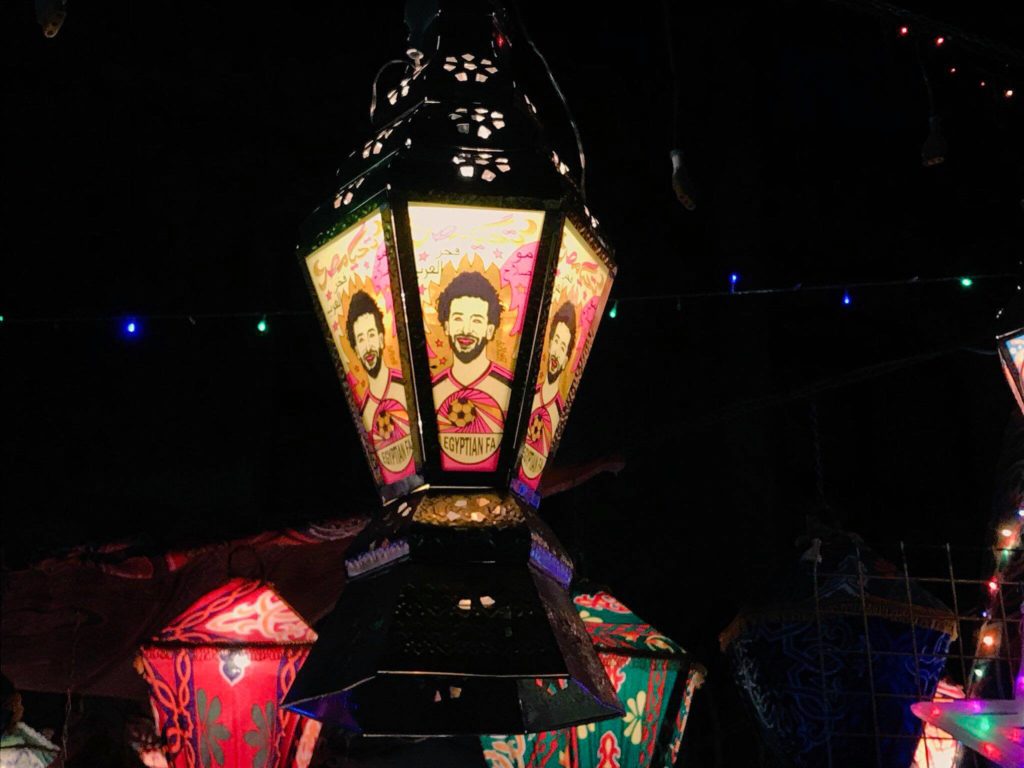
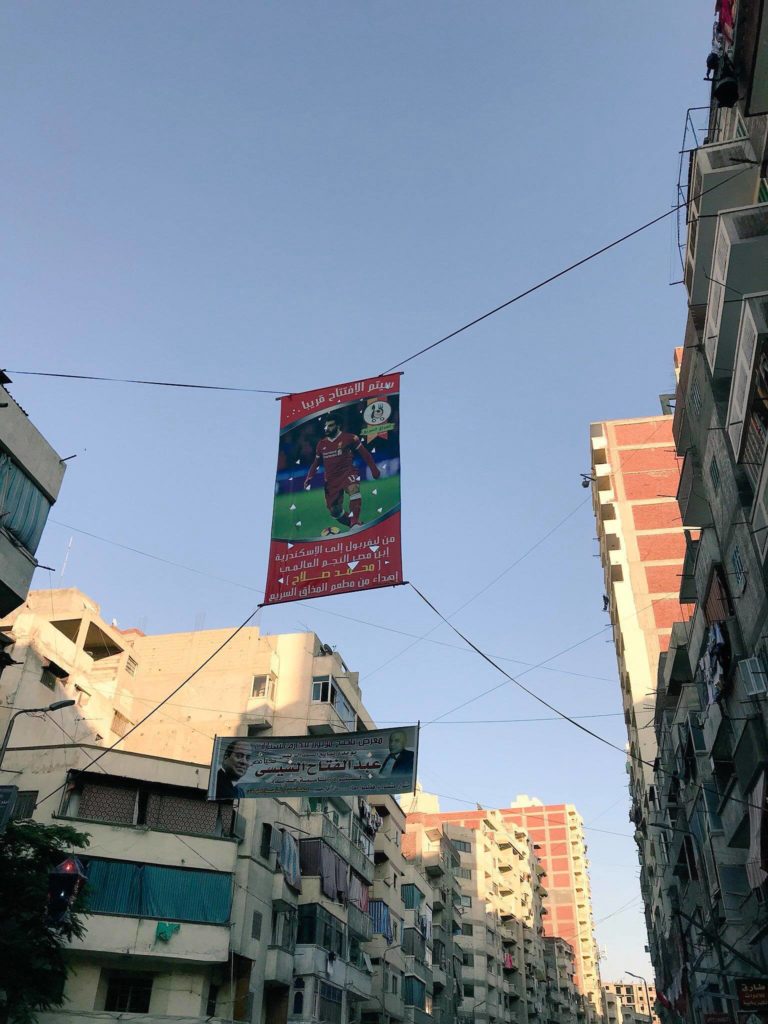
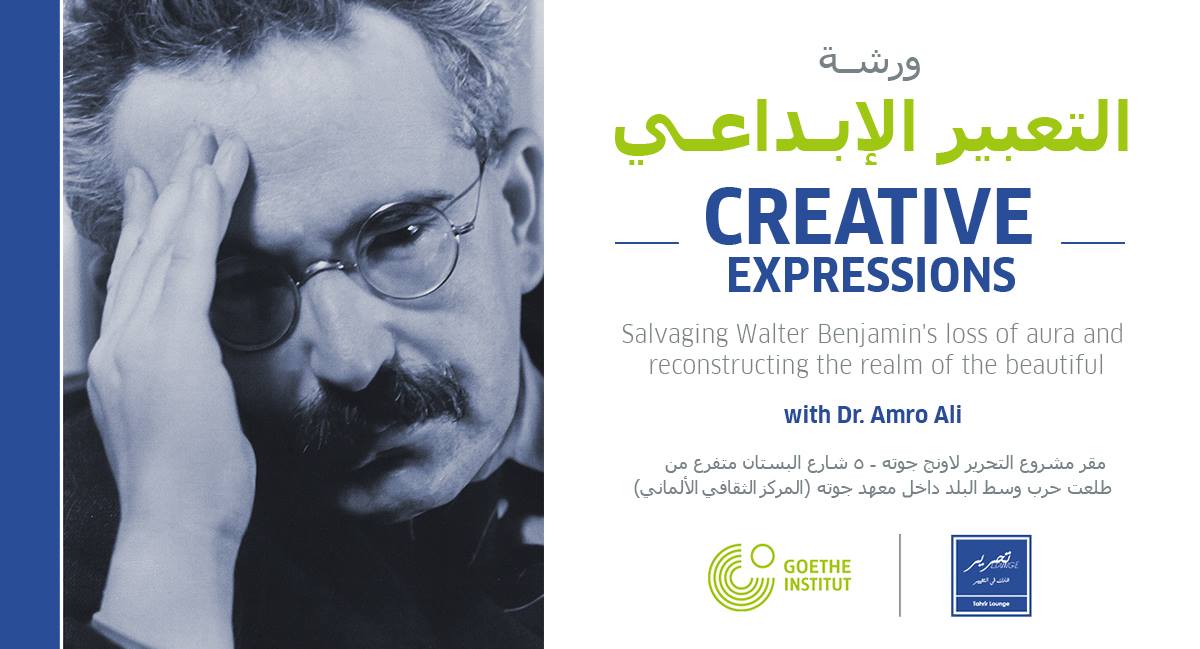
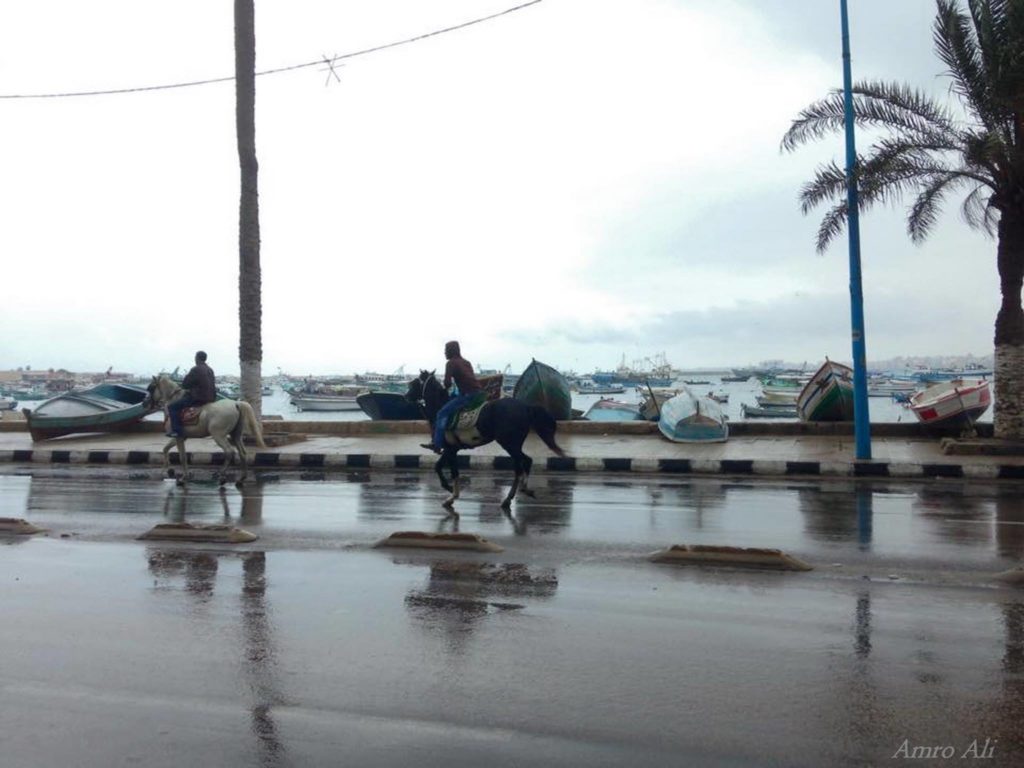 Understanding Alexandria as a second city can shed light on how historical imaginaries influence present-day experiences, as well as the cultural practices and social norms that arise; as the very notion of “second,” and the inevitable comparisons with other cities that it spurs, can drive decisions and shape a peculiar approach to one’s city.
Understanding Alexandria as a second city can shed light on how historical imaginaries influence present-day experiences, as well as the cultural practices and social norms that arise; as the very notion of “second,” and the inevitable comparisons with other cities that it spurs, can drive decisions and shape a peculiar approach to one’s city.